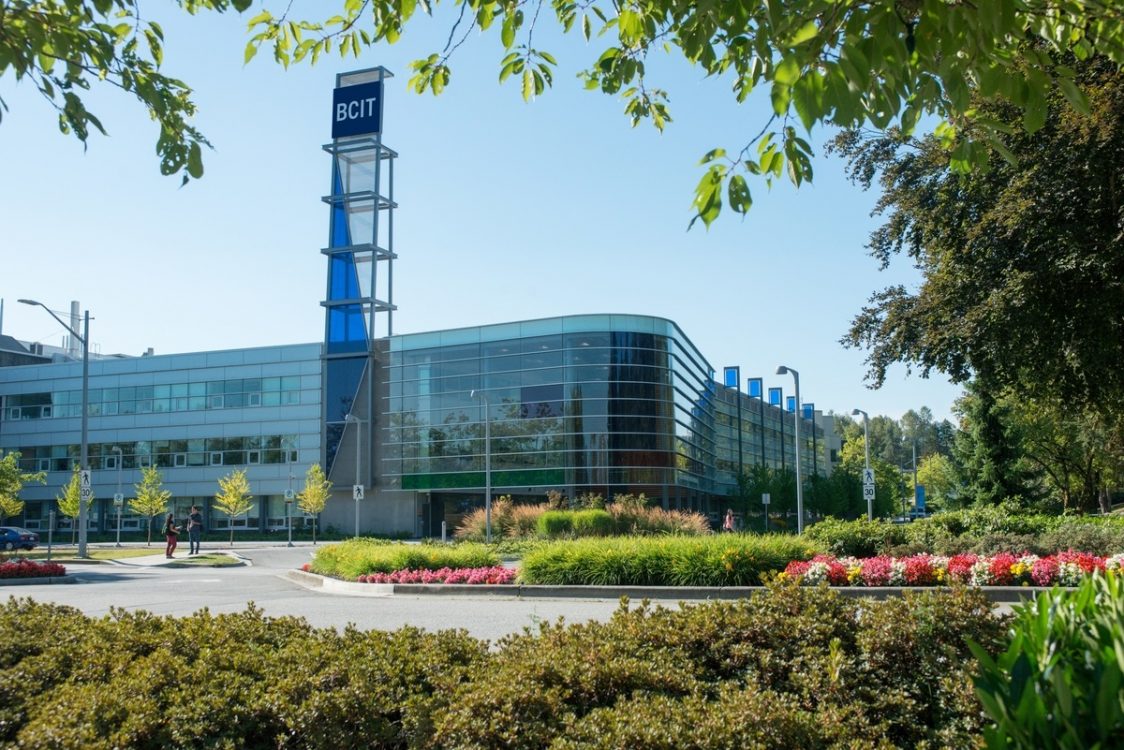Microsoft president Brad Smith announced partnership at International Innovation Conference today
September 12, 2017 – Seattle, WA: Three internationally recognized institutes of technology (“polytechnics”) have joined forces to provide industry aligned, high-skill talent for the Cascadia Corridor’s workforce needs. British Columbia Institute of Technology (BCIT), Lake Washington Institute of Technology (LWTech), and Oregon Institute of Technology (Oregon Tech) will collaborate in multiple ways to leverage their extensive applied education offerings in high-demand STEM fields. The alliance of these higher education partners in the Cascadia Corridor was announced today by Microsoft president Brad Smith at the Cascadia Corridor Innovation Conference in Seattle.
Brad Smith said, “As our region continues to establish itself as one of the world’s most important hubs for innovation, its enormous appetite for high skilled talent will only grow. Partnerships between polytechnics like these can create home-grown talent to meet the rising workforce needs along the Cascadia Corridor.”
Combined, the Institutes provide engineering, technology and other applied degrees at the associate, bachelor, and master’s levels. Their collective engagement in the Cascadia Corridor will focus on close collaboration with industry, meeting its requirements, and providing in-demand career opportunities for graduates.
Kathy Kinloch, President of BCIT, said, “We see it as critical that post secondary institutions and industry, within and across our borders, work together to help fill the huge demand for skilled workers and innovative approaches and solutions to support the economy, our environment, and communities. Educating nearly 50,000 students ever year in areas such as applied and natural sciences, business, computing, engineering, and health sciences, BCIT is proud to join LWTech and Oregon Tech to become part of the growing number of partnerships that are making the Cascadia Corridor a real and viable opportunity for this region.”
With strategic locations near Vancouver, B.C., Seattle, Washington, and Portland, Oregon, the three polytechnics will partner with each other and their shared industry connections on work-integrated student learning placements, professional development opportunities for faculty, and sponsorships of events and future-oriented initiatives, among other areas under development.
Dr. Nagi Naganathan, president of Oregon Tech said, “The Pacific Northwest is fortunate to have three technology-focused institutes that share similar student-oriented, industry-aligned, applied learning missions. Our complementary programs and polytechnic pathways support industry and close regional, national and international skills gaps. As polytechnics, our institutions by nature operate under entrepreneurial philosophies that are part of the culture of the Cascadia Corridor. This is a natural fit that will yield a significant ROI for our region.”
The three institutes signed a Memorandum of Understanding today that outlines a matrix of opportunities and value for their students, which ultimately will benefit the workforce needs of industry. Collaborations will include areas such as degree program articulation and credit transfer across the three campuses; industry-directed applied research; joint projects and skills competitions; and meaningful exchanges for international students visiting the US and/or Canada.
Dr. Amy Morrison Goings, president of LWTech said, “The role that polytechnic institutions play with respect to economic development is a very critical one for our students and for industry. We are aligned with workforce needs in a way that ensures we’re focusing on the most in-demand technical fields across all degree levels. An integral part of this shared mission includes closing opportunity gaps for underrepresented students, increasing international mobility, and assisting industry in the diversification of its workforce.”
Polytechnics have a long history of their graduates experiencing some of the broadest career opportunities and highest starting and career salaries in their fields. At the same time, these institutions are producing gains for industry partners because they calibrate their education offerings with current and emerging needs.
About British Columbia Institute of Technology
The British Columbia Institute of Technology is a catalyst for economic, social, and environmental prosperity in the province, the nation, and increasingly, the world. Since 1964, BCIT has taught and trained generations of experts, professionals, and innovators who have envisioned, created, evolved, and improved our country’s infrastructure, accelerated its economy, and grown its stature. One of British Columbia’s largest post-secondary institutes, BCIT educates nearly 50,000 students each year in areas such as applied and natural sciences, business, computing, engineering, and health sciences. The institute awards over 6,500 credentials annually ranging from certificates and diplomas to bachelor’s and master’s degrees. Today, BCIT is reimagining the future of student access, teaching, and learning. Its partnerships with communities and industry help to anticipate and outpace the force of technological disruption and set its students apart in a competitive and changing world.
About Lake Washington Institute of Technology
As the only public institute of technology in Washington State, Lake Washington Institute of Technology (LWTech) provides students with the latest cutting edge skills relevant to today’s workplace. LWTech offers six bachelor’s degrees, more than 45 associate degrees, and more than 85 professional certificates in 44 areas of study, including STEM-focused programs in Science, Technology, Engineering, and Math.
About Oregon Institute of Technology
Founded in Klamath Falls in 1947, Oregon Institute of Technology is Oregon’s high quality, public polytechnic institution. Oregon Tech provides bachelor’s and master’s degree programs in engineering, health technologies, business, technology, communication, and applied sciences that prepare students to be effective participants in their professional, public, and international communities through applied, relevant learning and professional practice. Oregon Tech has a full-service, residential campus in Klamath Falls; an urban, industry-focused campus in the Portland-Metro area (in Wilsonville); an Online campus; and offers degrees at Boeing Seattle and other sites. Visit www.oit.edu to learn more about Oregon Institute of Technology.
-30-
